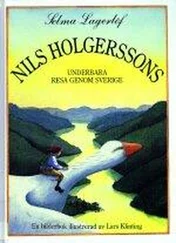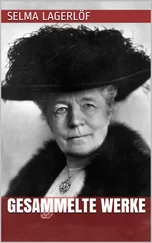Selma Lagerlöf - The Emperor of Portugallia
Здесь есть возможность читать онлайн «Selma Lagerlöf - The Emperor of Portugallia» — ознакомительный отрывок электронной книги совершенно бесплатно, а после прочтения отрывка купить полную версию. В некоторых случаях можно слушать аудио, скачать через торрент в формате fb2 и присутствует краткое содержание. Жанр: foreign_antique, foreign_prose, на английском языке. Описание произведения, (предисловие) а так же отзывы посетителей доступны на портале библиотеки ЛибКат.
- Название:The Emperor of Portugallia
- Автор:
- Жанр:
- Год:неизвестен
- ISBN:нет данных
- Рейтинг книги:5 / 5. Голосов: 1
-
Избранное:Добавить в избранное
- Отзывы:
-
Ваша оценка:
- 100
- 1
- 2
- 3
- 4
- 5
The Emperor of Portugallia: краткое содержание, описание и аннотация
Предлагаем к чтению аннотацию, описание, краткое содержание или предисловие (зависит от того, что написал сам автор книги «The Emperor of Portugallia»). Если вы не нашли необходимую информацию о книге — напишите в комментариях, мы постараемся отыскать её.
The Emperor of Portugallia — читать онлайн ознакомительный отрывок
Ниже представлен текст книги, разбитый по страницам. Система сохранения места последней прочитанной страницы, позволяет с удобством читать онлайн бесплатно книгу «The Emperor of Portugallia», без необходимости каждый раз заново искать на чём Вы остановились. Поставьте закладку, и сможете в любой момент перейти на страницу, на которой закончили чтение.
Интервал:
Закладка:
But for all that the little girl was just as enthusiastic over her fishing. She got up every morning at the ionic time that Jan did and hurried off to the brook, a basket on her arm, and carrying in a little tin box the worms to bait her hooks. Thus equipped, she went off to the brook, which came gushing down the rocky steep in numerous falls and rapids, between which were short stretches of dark still water and places where the stream ran, clear and transparent, over a bed of sand and smooth stones.
Think of it! After the first week she had no luck with the fishing. The worms were gone from all the hooks, but no fish had fastened there. She shifted her tackle from rapid to still water, from still water to rippling falls, and she changed her hooks – but with no better results.
She asked the boys at Börje's and at Eric's if they were not the ones who got up with the lark and carried off her fish. But a question like that the boys would not deign to answer. For no boy would stoop to take fish from the brook, when he had the whole of Dove Lake to fish in. It was all right for little girls, who were not allowed to go down to the lake, to run about hunting fish in the woods, they said.
Despite the superior airs of the boys, the little girl only half-believed them. "Surely someone must take the fish off my hooks!" she said to herself. Hers were real hooks, too, and not just bent pins. And in order to satisfy herself she arose one morning before Jan or Katrina were awake, and ran over to the brook. When near to the stream she slackened her pace, taking very short cautious steps so as not to slip on the stones or to rustle the bushes. Then, all at once her, whole body became numb. For at the edge of the brook, on the very spot where she had set out her poles the morning before, stood a fish thief tampering with her lines. It was not one of the boys, as she had supposed, but a grown man, who was just then bending over the water, drawing up a fish.
Little Glory Goldie was never afraid. She rushed right up to the thief and caught him in the act.
"So you're the one who comes here and takes my fish!" she said. "It's a good thing I've run across you at last so we can put a stop to this stealing."
The man then raised his head, and now Glory Goldie saw his face. It was the old seine-maker, who was one of their neighbours.
"Yes, I know this is your tackle," the man admitted, without getting angry or excited, as most folks do when taken to task for wrongdoing.
"But how can you take what isn't yours?" asked the puzzled youngster.
The man looked straight at her; she never forgot that look; she seemed to be peering into two open and empty caverns at the back of which were a pair of half-dead eyes, beyond reflecting either joy or grief.
"Well, you see, I'm aware that you get what you require from your parents and that you fish only for the fun of it, while at my home we are starving."
The little girl flushed. Now she felt ashamed.
The seine-maker said nothing further, but picked up his cap (it had dropped from his head while he was bending over the fishing-poles) and went his way. Nor did Glory Goldie speak. A couple of fish lay floundering on the ground, but she did not take them up; when she had stood a while looking at them, she kicked them back into the water.
All that day the little girl felt displeased with herself, without knowing why. For indeed it was not she who had done wrong. She could not get the seine-maker out of her thoughts. The old man was said to have been rich at one time; he had once owned seven big farmsteads, each in itself worth as much as Eric of Falla's farm. But in some unaccountable way he had disposed of his property and was now quite penniless.
However, the next morning Glory Goldie went over to the brook the same as usual. This time no one had touched her hooks, for now there was a fish at the end of every line. She released the fishes from the hooks and laid them in her basket; but instead of going home with her catch she went straight to the seine-maker's cabin.
When the little girl came along with her basket the old man was out in the yard, cutting wood. She stood at the stile a moment, watching him, before stepping over. He looked pitifully poor and ragged. Even her father had never appeared so shabby.
The little girl had heard that some well-do-to people had offered the seine-maker a home for life, but in preference he had gone to live with his daughter-in-law, who made her home here in the Ashdales, so as to help her in any way that he could; she had many children, and her husband, who had deserted her, was now supposed to be dead.
"To-day there was fish on the hooks!" shouted the little girl from the stile.
"You don't tell me!" said the seine-maker. "But that was well."
"I'll gladly give you all the fish I catch," she told him, "if I'm only allowed to do the fishing myself." So saying, she went up to the seine-maker and emptied the contents of her basket on the ground, expecting of course that he would be pleased and would praise her, just as her father – who was always pleased with everything she said or did – had always done. But the seine maker took this attention with his usual calm indifference.
"You keep what's yours," he said. "We're so used to going hungry here that we can get on without your few little fishes."
There was something out of the common about this poor old man and
Glory Goldie was anxious to win his approval.
"You may take the fish of and stick the worms on the hooks, if you like," said she, "and you can have all the tackle and everything."
"Thanks," returned the old man. "But I'll not deprive you of your pleasure."
Glory Goldie was determined not to go until she had thought out a way of satisfying him.
"Would you like me to come and call for you every morning," she asked him, "so that we could draw up the lines together and divide the catch – you to get half, and I half?"
Then the old man stopped chopping and rested on his axe. He turned his strange, half-dead eyes toward the child, and the shadow of a smile crossed his face.
"Ah, now you put out the right bait!" he said. "That proposition
I'll not say no to."
AGRIPPA
The little girl was certainly a marvel! When she was only ten years old she could manage even Agrippa Prästberg, the sight of whom was enough to scare almost any one out of his wits.
Agrippa had yellow red-lidded eyes, topped with bushy eyebrows, a frightful nose, and a wiry beard that stood out from his face like raised bristles. His forehead was covered with deep wrinkles and his figure was tall and ungainly. He always wore a ragged military cap.
One day when the little girl sat all by herself on the flat stone in front of the hut, eating her evening meal of buttered bread, she espied a tall man coming down the lane whom she soon recognized as Agrippa Prästberg. However, she kept her wits about her, and at once broke and doubled her slice of bread buttered side in – then slipped it under her apron.
She did not attempt to run away or to lock up the house, knowing that that would be useless with a man of his sort; but kept her seat. All she did was to pick up an unfinished stocking Katrina had left lying on the stone when starting out with Jan's supper a while ago, and go to knitting for dear life.
She sat there as if quite calm and content, but with one eye on the gate. No, indeed, there was not a doubt about it – Agrippa intended to pay them a visit, for just then he lifted the gate latch.
The little girl moved farther back on the stone and spread out her skirt. She saw now that she would have to guard the house.
Glory Goldie knew, to be sure, that Agrippa Prästberg was not the kind of man who would steal, and he never struck any one unless they called him Grippie, or offered him buttered bread, nor did he stop long at a place where folk had the good luck not to have a Darlecarlian clock in the house.
Читать дальшеИнтервал:
Закладка:
Похожие книги на «The Emperor of Portugallia»
Представляем Вашему вниманию похожие книги на «The Emperor of Portugallia» списком для выбора. Мы отобрали схожую по названию и смыслу литературу в надежде предоставить читателям больше вариантов отыскать новые, интересные, ещё непрочитанные произведения.
Обсуждение, отзывы о книге «The Emperor of Portugallia» и просто собственные мнения читателей. Оставьте ваши комментарии, напишите, что Вы думаете о произведении, его смысле или главных героях. Укажите что конкретно понравилось, а что нет, и почему Вы так считаете.












